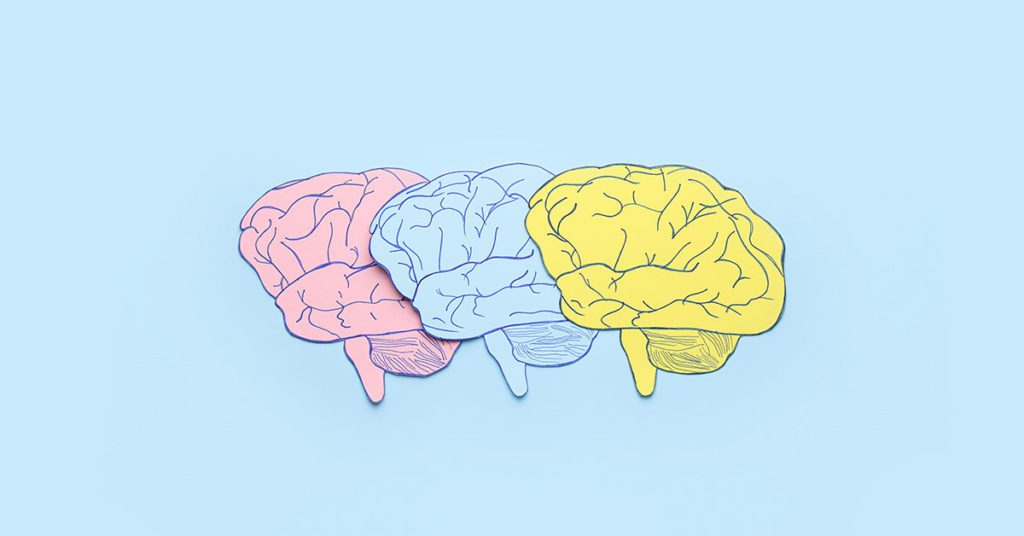When we think about our immune systems, thoughts of the cold season and Vitamin C usually come to mind. But what about the immune health of our brain?
For decades, scientists and doctors have believed our brain disconnected from the immune system protection. Typical viral and bacterial fights occur outside of the brain, supposedly shielding this vital organ from chaos.
Emerging research, however, shows our brain and immune system may be more in sync than we once thought. These discoveries change the way we look at everything from memory loss to supplementation.
Role of Research on the Brain and Immune Health
Scientific American put it perfectly: the brain was long considered immunologically privileged, meaning it can tolerate the introduction of outside pathogens and tissues.
It made sense, knowing what we know about the blood-brain barrier (a defense line of cells lining the brain and its blood vessels, leaving little room for anything but nutrients to pass through), and the brain’s supposed lack of lymphatic drainage.
If you are not familiar with the lymphatic system, it is the fluid transport system of the body that is crucial to the immune system and eliminating toxins from the body.
Dr. Jonathan Kipnis and his research team recently discovered that there are indeed lymphatic vessels around the brain and spinal cord. This extension of the lymphatic system could explain the immune system’s role in brain and mental health.
“The discovery of a lymphatic system in the brain raises the possibility that a disorder of the lymphatic system is somehow involved in the causation of Alzheimer’s Disease,” says Dr. Michael Weiner, a professor of radiology at the University of California San Francisco.
Further analysis may reveal countless links between the immune system and other brain-threatening diseases.
How Our Brain Protects Our Exposure to Inflammation
Our brains are susceptible to everything from daily brain fog and headaches to mental health conditions, dementia, and more. Things like viral infections, free radicals, and inflammation can cause long-term effects on our brain function and speed the aging process.
To better understand the strength of vulnerability of the human brain, look no further than microglia. These good soldiers are the central nervous system and its immunity cells. They aid in brain development, help the brain maintain a clean environment, and defend against brain-specific diseases like meningitis and dementia. They come from the same family of cells as the rest of your body and its immune system cells, but from other brain cells.
The following excerpt from The Conversation describes what happens when stress and inflammation get too aggravating:
“Microglia have specific receptors on their surface which recognize distress signals from other cells. These signals attract microglia to the site of the problem. When the brain balance is disturbed (usually from inflammation), living neurons can become stressed and produce these signals. Thus, potentially causing them to be eaten alive by microglia. When neurons become killed, the connections they have with other neurons become eliminated. It can potentially cause severe issues in brain connectivity and functions.
Inflammation in the brain can occur from stress, pathogens, and auto-immune conditions, and the role inflammation plays in connection with other parts of the body. Brain inflammation is typical in neurodegenerative diseases, as well as mental health disorders, including depression.
Inflammation causes microglia to change roles and turn into their aggressive form to defend the brain. Usually, when stress signals stop; and anti-inflammatory signals are received, microglia go back to repairing, then protecting the brain.
The more we understand the brain and its relationship with immunity, the more it becomes evident that we can play a role in our mental and physical health—down to the cellular level.”
Habits for a Healthy Lifestyle
We take care of our brain when we take care of our overall health. Factors from a healthy diet to exercise and sleep can represent a crucial role in brain function and longevity.
Exercise gets our lymphatic system moving, helping to clear out harmful toxins. Follow a consistent exercise routine to support long-term brain health. A healthy diet can supply our cells with free radical-fighting antioxidants. Supplementation can offer peace from anxiety and improve mental sharpness.
Dr. Dale Bredesen, a world-renowned neurologist and author of The End of Alzheimer’s, said, “Supporting your brain today—and every day, with good habits and a smart supplementation routine, can keep you mentally sharp. No matter your family history, DNA, or previous neurological issues, there is hope.”
Dr. Bredesen coined the term “Bredesen 7,” factors that make up a blueprint for brain health, including nutrition, exercise, sleep, stress management, brain stimulation, detoxification, and supplements. All these factors affect our ability to have a positive impact on brain health and longevity.





